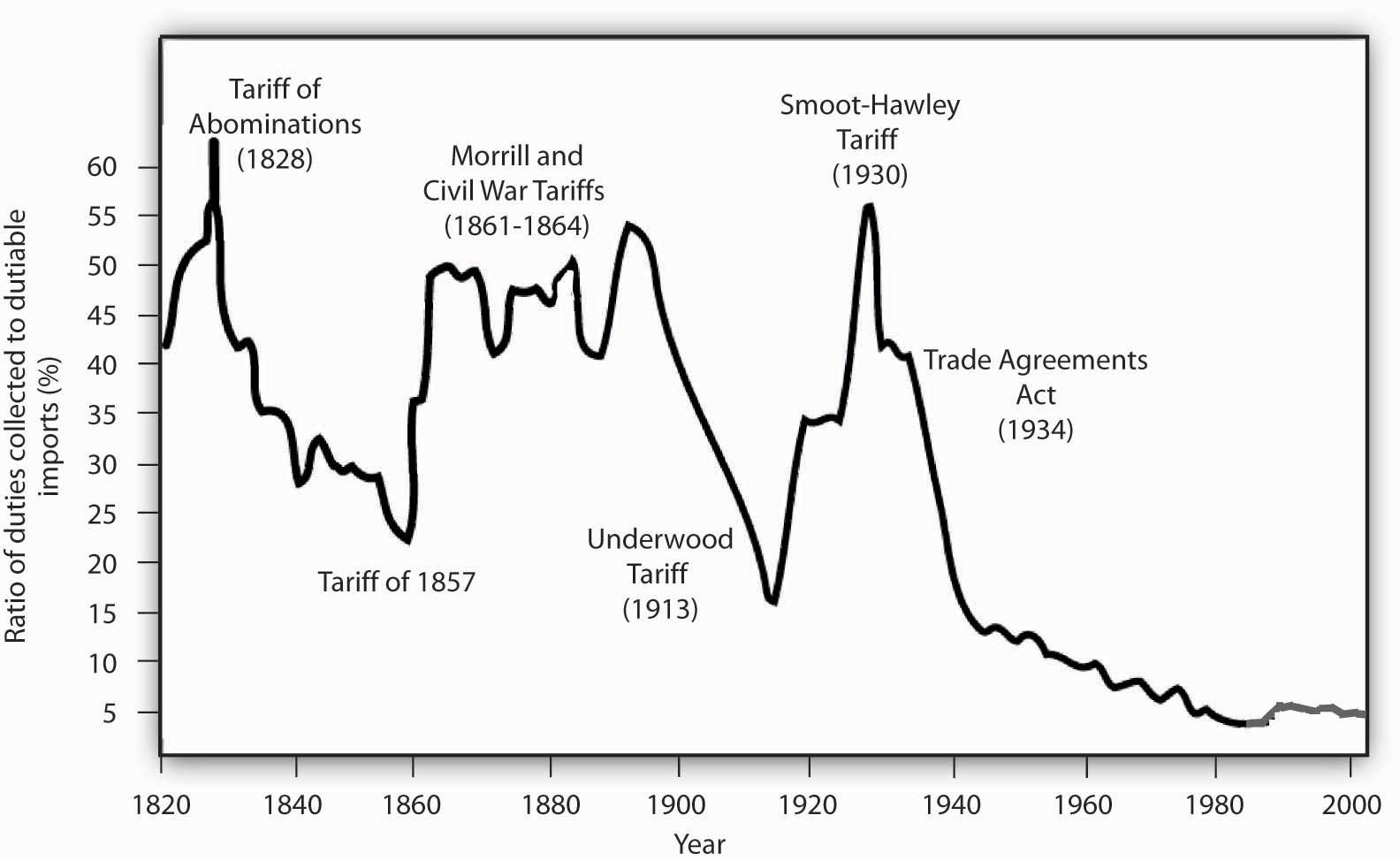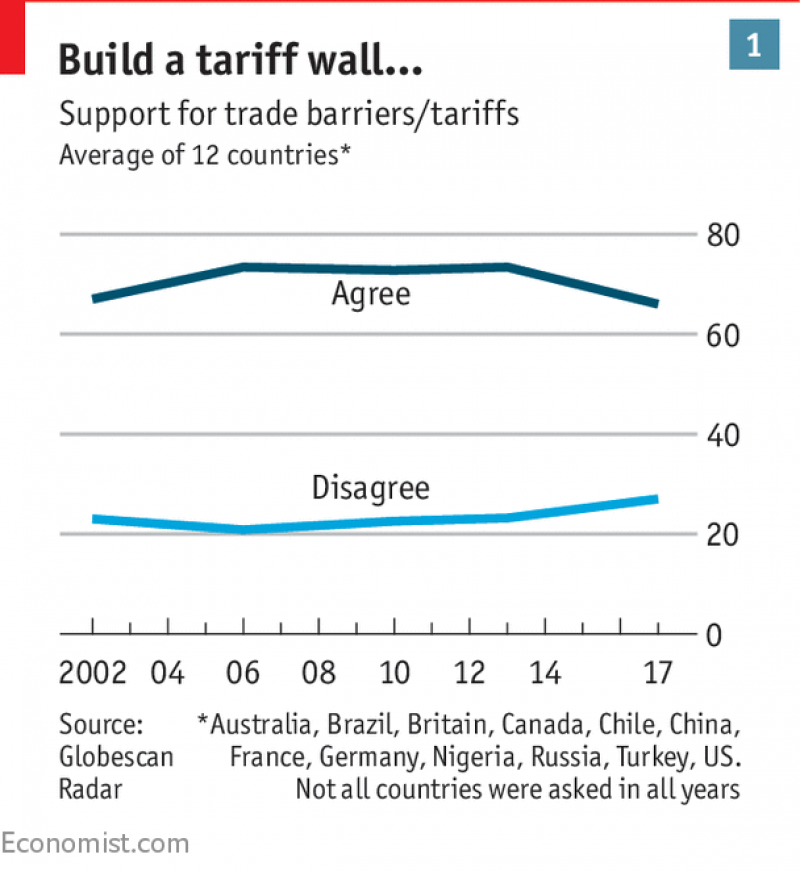The EU has about a 50% tariff on US beef and higher tariffs on US liquor (typical EU bureaucracy has many categories and quotas, so a single number is impossible). So why is a relatively low US tariff on 2 materials, (the EU has tariffs on about 100 materials from the US) make so much news time?
-
5$\begingroup$ This may be better on Politics.SE or Economics.SE. There isn't a skeptical claim here. $\endgroup$– Denis StallingsCommented Mar 8, 2018 at 16:50
-
$\begingroup$ I suspect, though, that if you look around you can find all sorts of specific people making specific claims around the idea that tariffs will destroy the US economy, and must be avoided at all costs. Some of those will likely be made by notable people or groups. If you wanted to bring one of those here to challenge, that would be an appropriate question for the format. $\endgroup$– Ben BardenCommented Mar 8, 2018 at 17:37
-
2$\begingroup$ Essentially because the United States has previously bound itself to charge no more than (for example) 2.6% tariffs on ordinary aluminium from other WTO members and in fact often charges less, such as 0% on the imports from its largest supplier Canada due to NAFTA. EU tariffs on imports from the US and elsewhere are similarly bound by previous WTO deals. The reason given of "national security" for a 10% tariff on aluminium is seen as implausible by most commentators, and instead it looks more like Trump wanting to start a trade war by ripping up previous rules. $\endgroup$– HenryCommented Mar 8, 2018 at 18:39
-
$\begingroup$ @Henry Post answers as answers so they can be voted on! $\endgroup$– GiskardCommented Mar 9, 2018 at 15:36
2 Answers
Nations frequently have tariffs between each other. However, the trend since WW2 has been fewer tariffs and other trade barriers. For example, even recently the EU has significantly reduced tariffs.
Likewise, the US has also both practiced and preached free trade, reducing tariff rates. 
Economists have strong consensus that tariffs are bad. This isn't dependent on political leanings, it has wide agreement. "The economics profession continues to show a consensus in favor of unfettered international trade, as 83 percent agree and only 10 percent disagree that the United States should eliminate remaining tariffs and other barriers."
The reason the new tariffs are reported by the US media are because they are a new policy change which oppose the existing trends and expert opinion, although they do have public suport 
Steel and aluminum are used to make tanks and jets. The US already has the largest military in history.
Because this will make other countries justifiably paranoid, it could start an arms race and a) waste a lot of everyone's money everywhere and b) possibly be a step toward some war of aggression. Both of these factors could force realignments among other countries that they might prefer not to have to make, in order to ensure that things cannot get too crazy.
Even if it's just Mr. Tough Guy being an idiot, other people have to plan for that. Due to the theoretical possibility that it's planning for some war of aggression, presumably those who disagree with wars of aggression will prefer to purchase media outputs from companies who provide sufficient information and perspective toward prevention of such things coming to pass.
-
2
-
3$\begingroup$ This seems very unlikely. These tariffs will, if anything, increase the costs of producing military equipment, which would counterproductive if the aim was to facilitate an arms race. $\endgroup$– CubicCommented Mar 9, 2018 at 16:56
-
1$\begingroup$ I agree with Cubic that it would increase the cost per unit, but it would increase the overall capacity in those sectors. This is a typical criticism of, say, the Soviet economy, which under Stalin achieve enormous growth in heavy industry related to arms production, while ultimately proving so inefficient that the Soviet model collapsed. $\endgroup$ Commented Mar 10, 2018 at 17:49